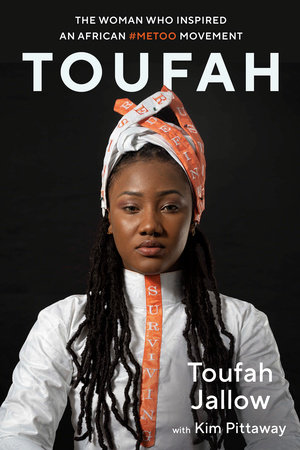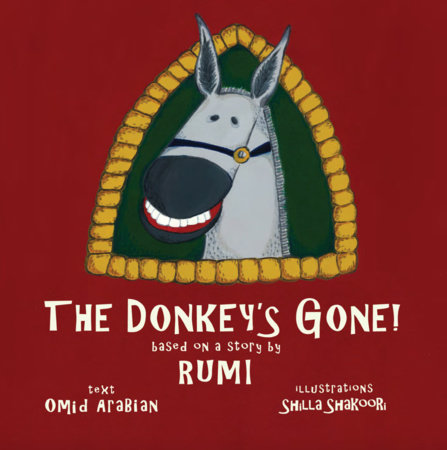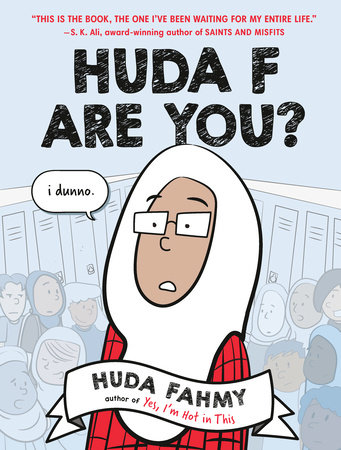 Fatima’s Great Outdoors, a picture book about an Indian American Muslim family’s experience camping, was published on March 30, 2021. It’s proven to be a wonderful book for sparking discussions about a host of topics, including the range of representation in immigrant experiences in children’s literature, especially as it relates to the South Asian community.
Fatima’s Great Outdoors, a picture book about an Indian American Muslim family’s experience camping, was published on March 30, 2021. It’s proven to be a wonderful book for sparking discussions about a host of topics, including the range of representation in immigrant experiences in children’s literature, especially as it relates to the South Asian community.
We have also had conversations amongst ourselves about the content and deliberate framing of the book, especially in light of the NPR interview with author Ambreen Tariq, and the points she brings up about outdoor spaces and of national parks and Native land (read this perspective about national parks and native land from the Atlantic) and the historical violence against Black people in the woods.
What follows are three perspectives on the book from Hijabi Librarian contributors:
- Ariana’s starred review for School Library Journal,
- Noureen’s review (below) that includes concerns that she has as a Pakistani American immigrant,
- as well as observations from Amna, who is a Pakistani Canadian immigrant.
Noureen’s review:
Tariq, Ambreen. Fatima’s Great Outdoors. Illus. by Steve Lewis. 2021. 40p. Penguin Young Readers Group $17.99 (ISBN 9781984816955) Grades K-3
 Fatima Khazi, an eight-year-old immigrant from India, is excited for her first ever camping trip with her family. After a rough week at school, this is the perfect getaway. Packed into the car, snacking on savory Indian treats, and singing along to old Bollywood songs by Rafi, a popular singer in India, the family makes their way to the campsite. The resourcefulness and ingenuity of her mother solves problems with a frightening spider, a stubborn tent, and a campfire that won’t catch. Fatima and her hardworking parents want to enjoy this “great American pastime” and eat Halal bacon along with their traditional Indian meal of shami kababs, roti, and anda.
Fatima Khazi, an eight-year-old immigrant from India, is excited for her first ever camping trip with her family. After a rough week at school, this is the perfect getaway. Packed into the car, snacking on savory Indian treats, and singing along to old Bollywood songs by Rafi, a popular singer in India, the family makes their way to the campsite. The resourcefulness and ingenuity of her mother solves problems with a frightening spider, a stubborn tent, and a campfire that won’t catch. Fatima and her hardworking parents want to enjoy this “great American pastime” and eat Halal bacon along with their traditional Indian meal of shami kababs, roti, and anda.
There is a certain unease in the story and sadness to Fatima’s character that is hard to ignore through the book. Fatima feels a sense of displacement and misses her life in India. There are no fellow immigrants or people of color that she can relate to at school or in the park. Fatima is clearly struggling with a lot of anxiety and worry. She misses her parents that work long hours and feels overshadowed by her sister, who seems to be adjusting more easily socially and academically at school, while Fatima is bullied at school for her thick accent, her appearance, and lunch.

The introduction of South Asian immigrant lifestyle is a bit cliche, and includes living in a one room house, working two jobs, not using paper products, eating home-cooked meals, and being resourceful. The Khazis’ life in India is portrayed through stereotypical struggles of Fatima’s mother in a small village with a woodburning stove, dealing with lizards and scorpions, while her father’s ineptness outdoors is due to his upbringing in the city.
The family’s past life is creatively mirrored on a two page spread and gives the readers a chance to take a closer look at the day-to-day Indian family’s lifestyle in the clothing, household items and setting.
 South Asian readers will relate to cultural touches and vocabulary in the book. However, there is no glossary to help other readers understand these unfamiliar words like nani (maternal grandmother), Apa (older sister), shabash (word of encouragement), roti (bread), shami kebabs (beef patties), samosas (fried pastry), aanda (fried egg), ghee (clarified butter), and Rafi, a famous singer from India.
South Asian readers will relate to cultural touches and vocabulary in the book. However, there is no glossary to help other readers understand these unfamiliar words like nani (maternal grandmother), Apa (older sister), shabash (word of encouragement), roti (bread), shami kebabs (beef patties), samosas (fried pastry), aanda (fried egg), ghee (clarified butter), and Rafi, a famous singer from India.
Lewis’s choice of color palette and use of light at different times of the day is exquisite and intricate. Resulting in the backdrop of the great outdoors that feels like a dreamy and enchanted woodland.
 It is an endearing book for young readers, though its tropes and cliches were a bit excessive for a South Asian immigrant like myself. Even so, I feel that the book is a nice introduction to the immigrant experience. Venturing into camping is clearly a step into the unknown, just like immigrating to a brand new country is a huge step in itself. The reader roots for this little girl and her family’s resourcefulness.
It is an endearing book for young readers, though its tropes and cliches were a bit excessive for a South Asian immigrant like myself. Even so, I feel that the book is a nice introduction to the immigrant experience. Venturing into camping is clearly a step into the unknown, just like immigrating to a brand new country is a huge step in itself. The reader roots for this little girl and her family’s resourcefulness.
Focusing on Fatima’s family and her mostly white classmates at the beginning of the book, there is not much racial diversity depicted with the exception of a multiracial group holding a “Brown People Camping” banner (the author founded the movement) at the end of the book.
The story makes many people of color feel welcome in the outdoors. The close-knitted family structure and the quality of art combines for a riveting read. People of all ages will enjoy this story as they remember memories of the trips they have taken with their families.
 Thank you to Kokila for providing digital access to this book. Fatima’s Great Outdoors was published March 30,2021.
Thank you to Kokila for providing digital access to this book. Fatima’s Great Outdoors was published March 30,2021.
Amna’s thoughts:
I enjoyed reading this story. I could relate to Fatima a lot, even though in my family, I am the aapa (or big sister). I appreciated the references to Bollywood songs, foods like shami kabab, anda (egg) and roti. I think that non-Urdu speakers may not understand all cultural and food references, especially since anda is not depicted, and a glossary is not included. This was not a problem for me as a reader, but I wanted to mention it. Another important detail enjoyed seeing was that the author was intentional in depicting the family getting meat from the halal butcher – I’ve never seen that mentioned in a picture book before!
Fatima’s mother was shown as a very practical and fearless woman and it was explained why her dad was so out of his element in the outdoors. I appreciated that her dad was not afraid to use the stove to make breakfast.
Overall, the family’s excitement in being together and trying something new, coupled with the lovely illustrations, is well conveyed and heartfelt. The illustrations really give the reader the opportunity to get to know the family more deeply, especially in the scenes and use of color palette that contrasts the family’s life in India with their life in the United States.
I appreciated the framing of Fatima and her sister’s school life, adjusting to new situations as new immigrants without first mentioning they were immigrants, as most of the incidents Fatima went through could easily happen to other children. Fatima’s experiences were very relatable, however, I appreciated the juxtaposition of her sister’s easy academic adaptation, challenging the idea that people have to have the same immigrant experiences, and that this experience can vary even amongst family members.
Here in Canada, we have a program called Learn to Camp which is offered by Parks Canada. Learn to Camp presents at libraries and other organizations to instruct potential campers on how to plan, organize, and do everything related to camping. The last illustration shows campers holding a Brown People Camping banner and reminds me of the last session I hosted at my library in 2019, where the speaker emphasized the idea of camping for everyone, and being inclusive of campers of many different ethnic backgrounds.
Readers Weigh-in
What did you think about this story and the intentionality behind it? Did you connect with any of the characters’ experiences?
 She Persisted: Malala Yousafzai
She Persisted: Malala Yousafzai Salaam, with Love by Sara Sharaf Beg
Salaam, with Love by Sara Sharaf Beg A Mermaid Girl by Sana Rafi
A Mermaid Girl by Sana Rafi The Thing I’m Most Afraid Of by Kristin Levine
The Thing I’m Most Afraid Of by Kristin Levine Toufah : The Woman Who Inspired an African #MeToo Movement
Toufah : The Woman Who Inspired an African #MeToo Movement Explanatorium of History By DK
Explanatorium of History By DK Triangle Square / Penguin Random House
Triangle Square / Penguin Random House Fatima’s Great Outdoors, a picture book about an Indian American Muslim family’s experience camping, was published on March 30, 2021. It’s proven to be a wonderful book for sparking discussions about a host of topics, including the range of representation in immigrant experiences in children’s literature, especially as it relates to the South Asian community.
Fatima’s Great Outdoors, a picture book about an Indian American Muslim family’s experience camping, was published on March 30, 2021. It’s proven to be a wonderful book for sparking discussions about a host of topics, including the range of representation in immigrant experiences in children’s literature, especially as it relates to the South Asian community.  Fatima Khazi, an eight-year-old immigrant from India, is excited for her first ever camping trip with her family. After a rough week at school, this is the perfect getaway. Packed into the car, snacking on savory Indian treats, and singing along to old Bollywood songs by Rafi, a popular singer in India, the family makes their way to the campsite. The resourcefulness and ingenuity of her mother solves problems with a frightening spider, a stubborn tent, and a campfire that won’t catch. Fatima and her hardworking parents want to enjoy this “great American pastime” and eat Halal bacon along with their traditional Indian meal of shami kababs, roti, and anda.
Fatima Khazi, an eight-year-old immigrant from India, is excited for her first ever camping trip with her family. After a rough week at school, this is the perfect getaway. Packed into the car, snacking on savory Indian treats, and singing along to old Bollywood songs by Rafi, a popular singer in India, the family makes their way to the campsite. The resourcefulness and ingenuity of her mother solves problems with a frightening spider, a stubborn tent, and a campfire that won’t catch. Fatima and her hardworking parents want to enjoy this “great American pastime” and eat Halal bacon along with their traditional Indian meal of shami kababs, roti, and anda.


 South Asian readers will relate to cultural touches and vocabulary in the book. However, there is no glossary to help other readers understand these unfamiliar words like nani (maternal grandmother), Apa (older sister), shabash (word of encouragement), roti (bread), shami kebabs (beef patties), samosas (fried pastry), aanda (fried egg), ghee (clarified butter), and Rafi, a famous singer from India.
South Asian readers will relate to cultural touches and vocabulary in the book. However, there is no glossary to help other readers understand these unfamiliar words like nani (maternal grandmother), Apa (older sister), shabash (word of encouragement), roti (bread), shami kebabs (beef patties), samosas (fried pastry), aanda (fried egg), ghee (clarified butter), and Rafi, a famous singer from India.  It is an endearing book for young readers, though its tropes and cliches were a bit excessive for a South Asian immigrant like myself. Even so, I feel that the book is a nice introduction to the immigrant experience. Venturing into camping is clearly a step into the unknown, just like immigrating to a brand new country is a huge step in itself. The reader roots for this little girl and her family’s resourcefulness.
It is an endearing book for young readers, though its tropes and cliches were a bit excessive for a South Asian immigrant like myself. Even so, I feel that the book is a nice introduction to the immigrant experience. Venturing into camping is clearly a step into the unknown, just like immigrating to a brand new country is a huge step in itself. The reader roots for this little girl and her family’s resourcefulness.  Thank you to Kokila for providing digital access to this book. Fatima’s Great Outdoors was published March 30,2021.
Thank you to Kokila for providing digital access to this book. Fatima’s Great Outdoors was published March 30,2021. Huda F Are You? by Huda Fahmy
Huda F Are You? by Huda Fahmy Narya and the Djinn by Iasmin Omar Ata
Narya and the Djinn by Iasmin Omar Ata